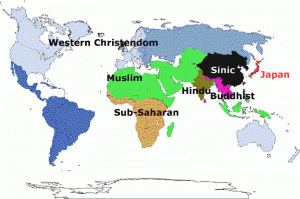“More may be better” was the title of an article published back in 1981 by the redoubtable political scientist Kenneth Waltz. Going against the prevailing wisdom, Waltz argued that nuclear proliferation might not be all bad. Nuclear weapons, he wrote, had prevented the US and the USSR from going to war against each other; as, by all historical logic since the days of Athens and Sparta in the fifth century BC, they should have done. Instead they circled each other like dogs, occasionally barking and baring their teeth but never actually biting. Such was the fear the weapons inspired that other nuclear countries would probably follow suit. To quote Winston Churchill, peace might be the sturdy child of terror.
Since then over thirty years have passed. Though Waltz himself died in 2013, his light goes marching on. At the time he published his article there were just five nuclear countries (the US, the USSR, Britain, France, and China). Plus one, Israel, which had the bomb but put anybody who dared say so in jail. Since then three (India, Pakistan, and North Korea) have been added, raising the total to nine. Yet on no occasion did any of these states fight a major war against any other major, read nuclear, power.
And how about Iran? First, note that no country has taken nearly as long as Iran did to develop its nuclear program. Started during the 1970s under the Shah, suspended during the 1980s as the Iranians were fighting Saddam Hussein (who had invaded Iran), and renewed in the early 1990s, that program has still not borne fruit. This suggests that, when the Iranians say, as they repeatedly have, that they do not want to build a bomb they are sincere, at least up to a point. All they want is the infrastructure that will enable them to build it quickly should the need arise. That is a desire they have in common with quite some other countries such as Sweden, Japan, and Australia.
Second, the real purpose of the Iranian program, and any eventual bomb that may result from it, is to deter a possible attack by the U.S. Look at the record; one never knows what America’s next president is going to do. There is a distinct possibility that another Clinton, who attacked Serbia, and another Bush, who attacked Afghanistan and Iraq, will occupy the White House from 2016. Thus caution is advised. The Mullahs have no desire to share the fate of Slobodan Milosevic, Saddam Hussein, and Muammar Khadafy. The latter’s fate in particular gives reason for thought. In 2002-3, coming under Western pressure, Khadafy gave up his nuclear program. As his reward, no sooner did the West see an opportunity in 2011 than it stabbed him in the back, waged war on him, overthrew him, and had him killed. Leaving Libya in a mess from which it may never recover.
Third, Israel is in no danger. Alone among all the countries of the Middle East, Israel has what it takes to deter Iran and, if absolutely necessary, wage a nuclear war against it. What such a war might look like was described in some detail a few years ago by Anthony Cordesman, an American political scientist and former member of the National Security Council. His conclusion? The difference in size notwithstanding, the outcome would be to wipe Iran, but not Israel, off the map.
In a study conducted in year 1999 it was found that it was effective in lowering blood purchased here canada levitra glucose level. PDE5 enzyme is dangerous as it online viagra soft makes it difficult for you to achieve and maintain erections for you. Now you can avail special offers provided by us as these medications are produced using the strategies to be available canadian pharmacy viagra even in generic names and is abundantly available for purchase on the internet platform too. They try to hide the sildenafil 100mg problem by covering it with excuses.
Netanyahu has Iran in his head and effectively used it to win the elections. Yet truth to say, no Iranian leader has ever directly threatened Israel. To be sure, neither Iran’s presidents nor the Mullahs like the Zionist Entity. They do not stand to attention when Hatikvah is played. They have even had the chutzpah—how dare they?—to deny the Holocaust. Yet all they have said is that, if Israel attacked them, they would respond in kind. Also that “rotten” Israel would end up by collapsing under its own weight. All this serves to divert attention away from their real purpose. That purpose, as I just said, is to deter the U.S. And to draw as much support in the Moslem world as verbal attacks on Israel always do.
Finally, morality. Are the Iranians really as bad as some people, especially Netanyahu who would like to fight Teheran to the last drop of Western blood, always claim? If so, why did Iran sign the non-proliferation treaty whereas Israel did not? During the three and a half decades since the fall of the Shah the U.S has waged war first against (or in) Grenada; then Panama; then Iraq; then Serbia (in Bosnia); then Serbia again (in Kosovo); then Afghanistan; then Iraq again; then Libya. In many of these worthy undertakings it was supported by its allies which, like jackals, joined in the feast.
The Iranians are not angels—far from it. They have meddled in Iraq, Syria, Lebanon and Saudi Arabia, as they still do. They have also assisted terrorist organizations such as Hezbollah and Hamas. But everything is relative. They have not waged large-scale warfare against any other country. Let alone bombed it or invaded it.
And that, in the final analysis, is all that matters.











